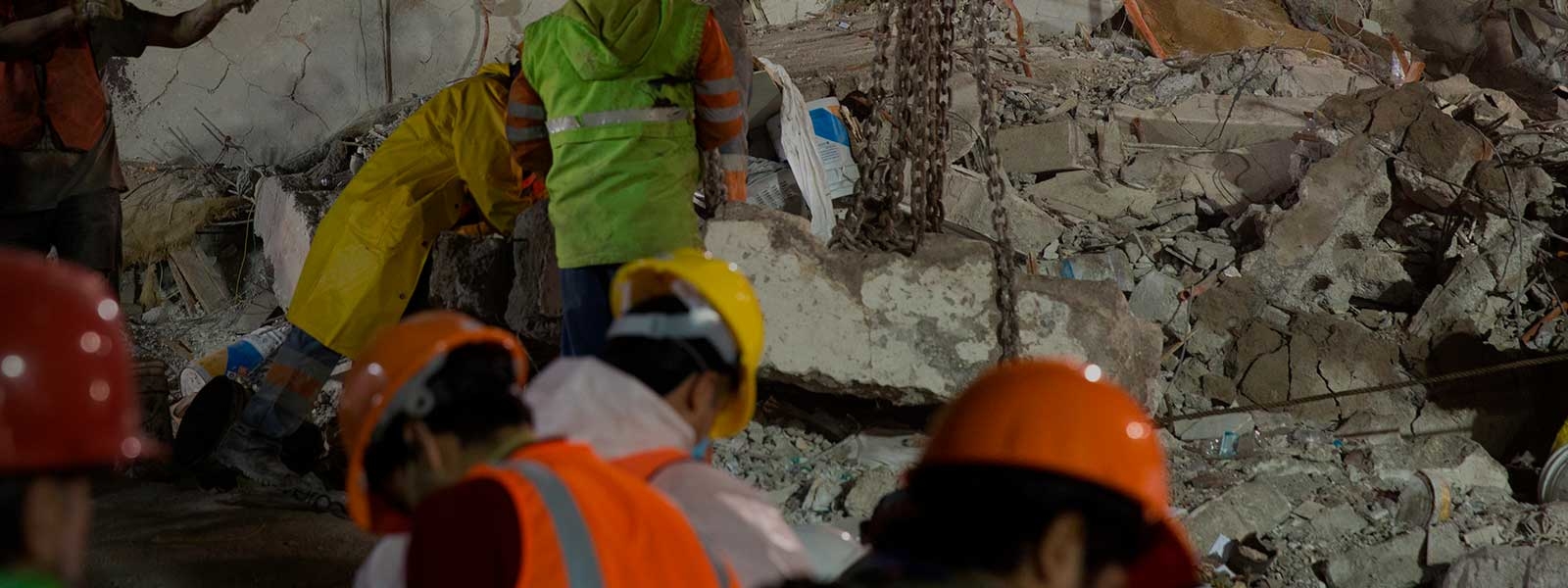All hands on deck in Mexico City
Our people mobilize to support earthquake relief and reconstruction.
3 min read
We find our work increasingly reflects both the world’s most urgent needs and its most promising opportunities.
Jacquelyn MacLennan, partner and global pro bono practice lead, Brussels
When the Chiapas earthquake hit Mexico on September 7, 2017, it was the strongest earthquake the country had experienced in a century. Followed just 12 days later by the Central Mexico earthquake, the devastation was widespread and serious.
Immediately after Chiapas struck, our people had an overwhelming desire to help. Very quickly, the office mobilized to collect a huge selection of items requested by local centers serving those who needed help. Food, clothing, medical supplies and more all poured in and were taken to central distribution points, often by our people in their personal vehicles. Many people also made charitable contributions to the relief and reconstruction efforts.
With the second earthquake causing significant damage to Mexico City itself, our people coordinated their response overnight, taking water and medical supplies to distribution points. The following day, many of our people began sorting donations, making sandwiches and distributing supplies, including the catering from an office social event that was immediately canceled. White & Case messengers, used to navigating the city by motorcycle, volunteered to get donations and materials to areas of the city not accessible by car.
Ismael Reyes Retana Tello, a partner in the Mexico City office who was part of the team coordinating efforts, explains his perspective, "We do it because we want to help each other and to help the community, in good times and bad. We were working on coordinating donations and ensuring supplies got to where they were needed, but it always felt like it wasn’t enough. I think we all wanted to do more because the will to help when disaster like this happens is overwhelming."
The Mexican authorities, aid groups and volunteers used social media and apps effectively to increase the swiftness of the response. Groups were coordinated by email and WhatsApp, while social media accounts and quickly created hashtags meant information on where donations could most usefully be sent was available instantly.
After the immediate response was over, our lawyers created materials with information on how to get help for those affected by the earthquake. Instructions for how to get copies of important documents, provide proof of address or other related legal issues were distributed in person and on social media; they are also available on the White & Case website.
Legal and language skills help those caught in transit
On January 27, 2017, when the initial executive order from US President Donald J. Trump halted all refugee admissions to the US and temporarily banned people from seven countries, the impact for individuals in transit was immediate and highly challenging. White & Case was able to mobilize two teams of lawyers fluent in Arabic and Persian to meet with travelers at airports in New York and Washington, DC in case they needed immediate counsel. Once the initial chaos had passed, the Firm quickly engaged with three groups—The Legal Aid Society of New York, the Iranian American Bar Association and the International Refugee Assistance Project—to research key legal questions that could put travel limitations in a more constitutional legal framework.

